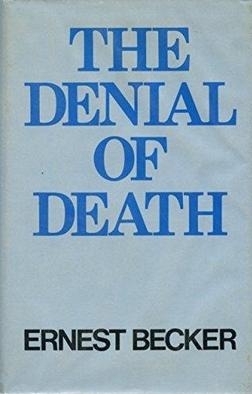The Denial of Death and My Faith - Phil Stine

It is astounding that a book by an atheist who personally was not really well-disposed to Christianity is what allowed me to retain my faith at a time when I was considering rejecting it all. But that is exactly what happened.
In his 1974 Pulitzer Prize winning The Denial of Death, Ernest Becker argues that coming to grips with the fact that we are dying, polluting creatures is the underlying motivation for human behavior. He demonstrates how the philosophies of Freud, Rank, Kierkegaard, to name a few, all are really ways to explain this fact of our being.
Becker accepts that everyone hopes to live a meaningful life. We all feel existential dread if we think that we’re simply born to die. So we look for purpose and meaning in everything. As for Christianity and faith, Becker encourages readers to accept that there is a larger creative force at work in the universe. While we ourselves are fragile and finite, the universe is eternal, and we exist as part of a greater plan. Christianity, Becker says, accomplishes this.
Becker says there is a difference between manmade systems that cause harm, and pure faith which inspires peace, virtue, and love. Social constructs cause wars, not faith. If we all simply believed in a larger purpose, we would all be united, and there wouldn’t be much left to fight about.
I was rejecting Christianity because of the many faults and inconsistencies I saw in the churches and denominations I was working with in my job. But The Denial of Death urged me to consider why I allowed manmade cultural norms to dictate my life. We allow politics, religion, and other organized systems to feed off our fear of death and our desire to belong to something tangible and everlasting. The point is that we already do belong to something everlasting, even if we can’t name it or touch it. Instead of embracing our true nature, we waste time chasing a purpose that doesn’t exist.
Tags: Words of Wisdom from Some of Our Favorite Readings (June 2022)